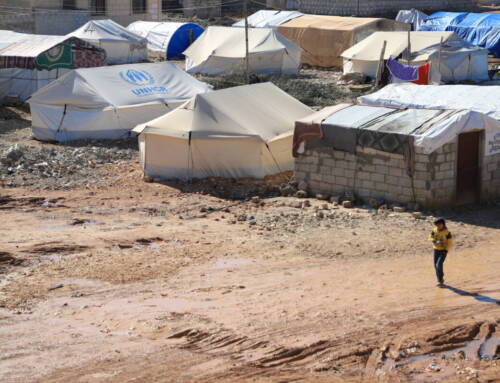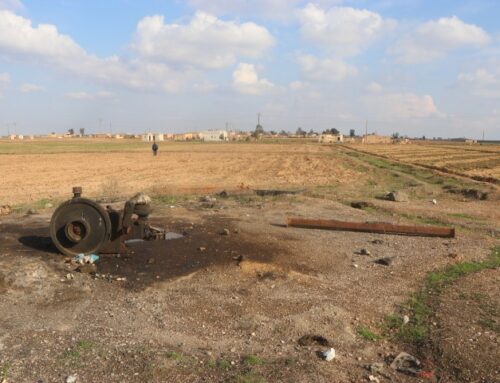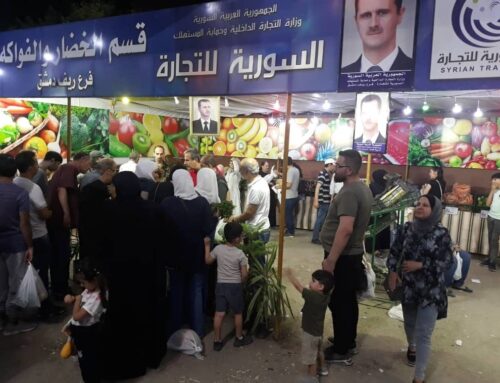Economist: New Syrian Central Bank policy sign of ‘massively depleted’ foreign reserves
AMMAN: The Syrian Central Bank on Tuesday increased the official […]
12 May 2016
AMMAN: The Syrian Central Bank on Tuesday increased the official exchange rate by more than 20 percent in a single day, a sign that the Syrian regime no longer has sufficient foreign currency reserves to maintain the artificially low exchange rate, economists tell Syria Direct.
The Syrian economy has long run on its black-market currency value, with a much lower official rate only in place at banks, where foreign currency is rationed to those with government connections.
But this past Tuesday, the Syrian Central Bank brought the Syrian lira, or pound, closer to the currency’s street value than it has been in years. The bank also announced that it will adjust the new flexible rate on a daily basis “without forewarning,” state-owned Russia Today reported on Tuesday.
The new monetary policy is one sign of the toll of more than five years of civil war on the Syrian government’s finances and means that the government lacks the foreign currency reserves to maintain its artificially low official exchange rate. Governments rely on foreign currency reserves to purchase domestic currency, increasing its demand and thus its value.
“Syria has adopted a managed flexible system in which the official pound exchange rate will continue to weaken in the foreseeable future, as has the pound on the black market over the past few years,” says Steve Hanke, professor of applied economics at the Johns Hopkins University and director of the Cato Institute’s Troubled Currencies Project.
The price of a dollar in Damascus’s black-market currency exchanges rose from SP47:$1 in 2011 to SP625:$1 as of Thursday, according to the website Syria-Stocks. More than half of the depreciation occurred in the past seven months, and 15 percent in the past two weeks.
“In short, this recent shift in policy, if sustained, will mean that the official and the black market SP/USD rates will tend to merge,” says Hanke, adding that the policy will “tend to conserve foreign exchange reserves, which have been massively depleted.”
In April, the World Bank reported that the Syrian Central Bank’s reserves of foreign currency had fallen from $20 billion at the end of 2010 to $.07 billion at the end of 2015.
In a possible move to offset negative perceptions of its financial solvency, the Syrian regime earlier this week began requiring “all currency-exchange companies to purchase $1 million of foreign currency and all foreign exchange bureaus to purchase $100,000 of foreign currency,” according to a statement released by the Syrian Central Bank.
But the influx of foreign currency from the Central Bank, which amounts to around $7 million, is not sufficient to stop the pound’s bleeding, one observer of the Syrian economy tells Syria Direct.
“The Central Bank always announces that it will pump tens of millions of dollars into the economy, and then they pump a few million and stop,” Ayad a-Jafari, editor of the online economic journal Iqtisadi, tells Syria Direct.
Since Tuesday, the black market exchange rate in Damascus has hovered between SP625:$1 and SP630:$1, according to Syria-Stocks, although some currency exchanges in regime-controlled Damascus and Aleppo have reported further increases.
“Even if the Central Bank can reign in the crisis temporarily, the situation will quickly slip out of its hands again,” says a-Jafari.
According to a-Jafari, the pound will continue to lose value “as long as the underlying causes of the deterioration persist.”
“The country’s manufacturing capacity is in its worst state in years,” he explains, “which means that the country relies primarily on importing, which in turn requires dollars and therefore increases the demand for foreign currency and exacerbates the deterioration of the pound.”
In other words, the Syrian government must counteract the large volume of Syrian pounds traded for dollars by trading its own foreign currency reserves for pounds, albeit at continuously higher prices.
As a-Jafari says, stabilizing the Syrian pound “requires on ongoing sale of foreign currency,” not the kind of one-off policy the government issued earlier this week.
“That’s something the Central Bank has never done before.”







